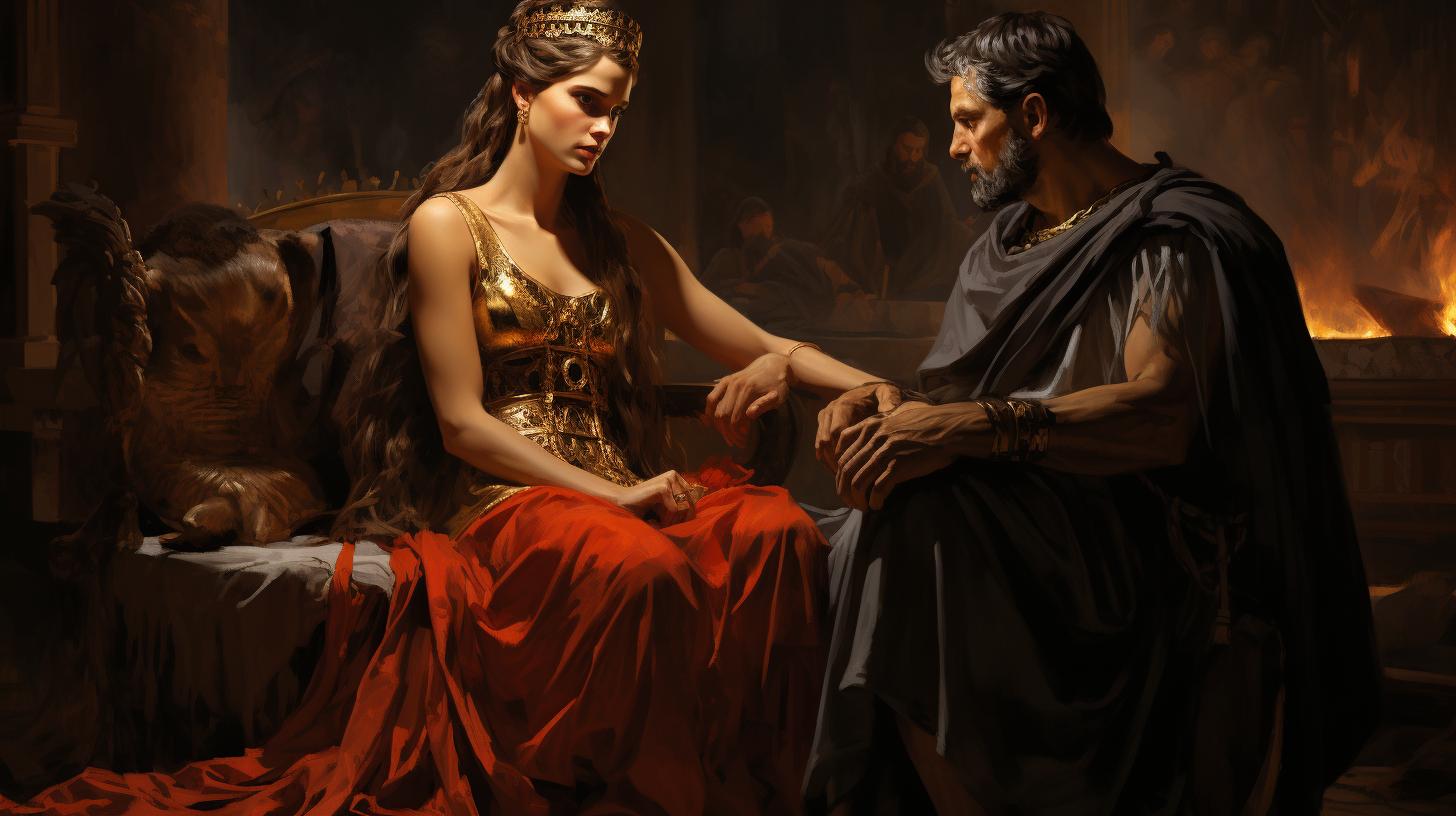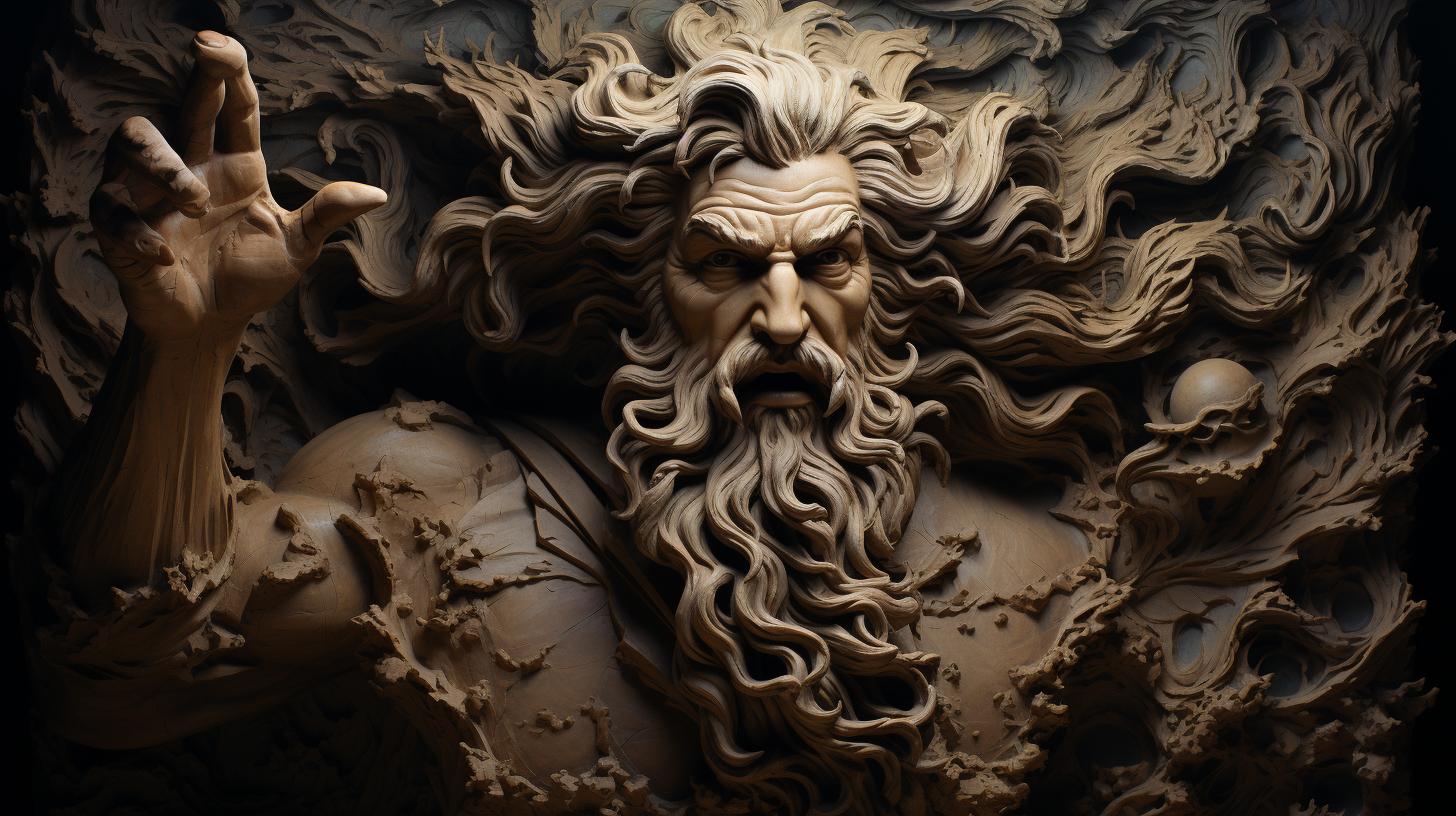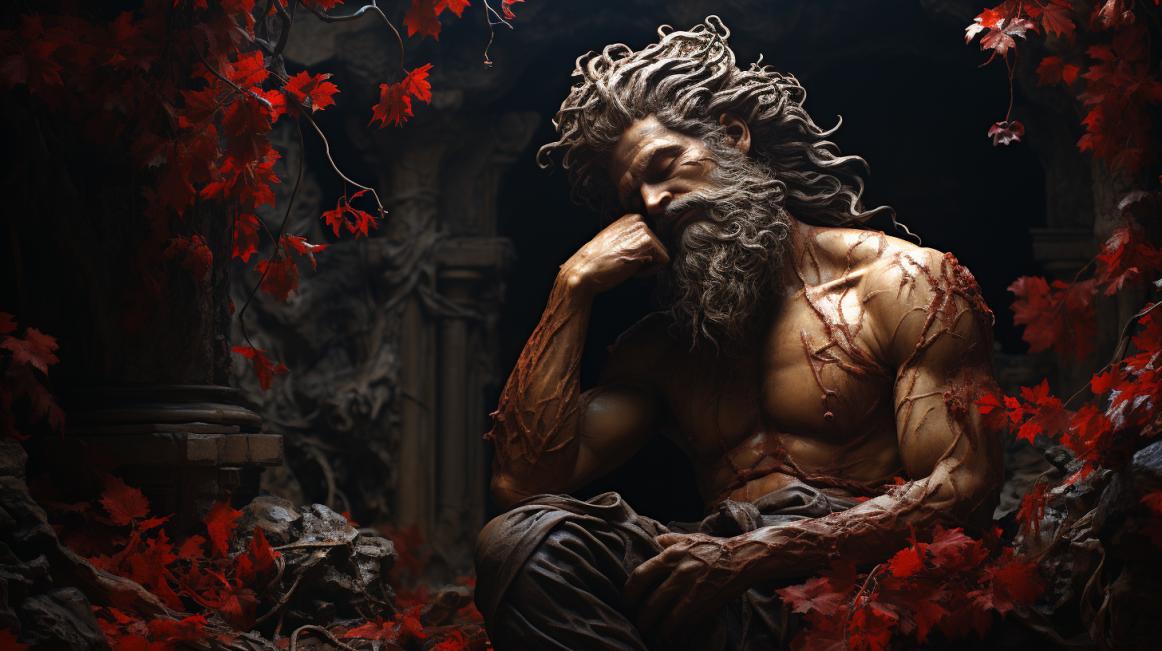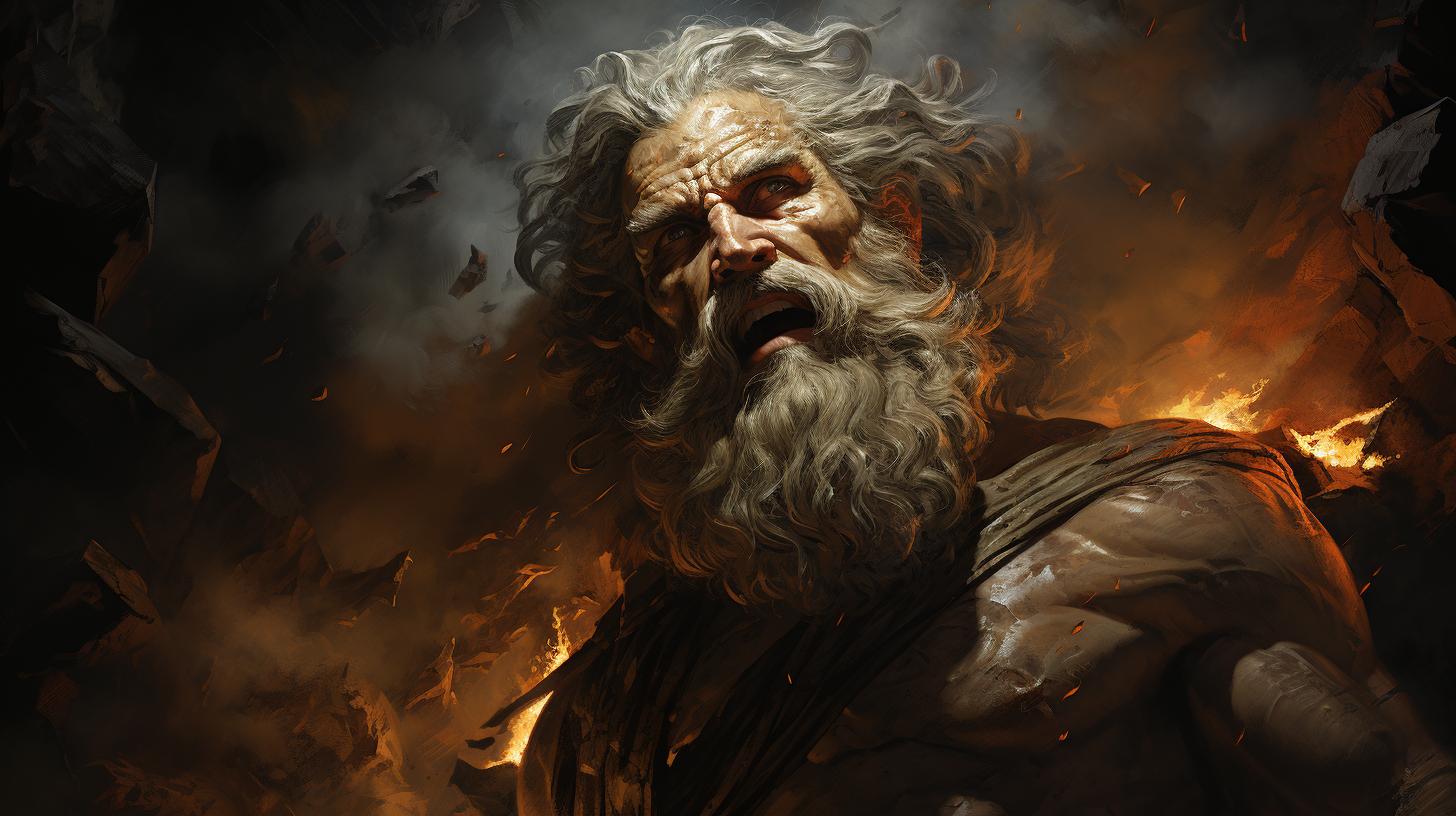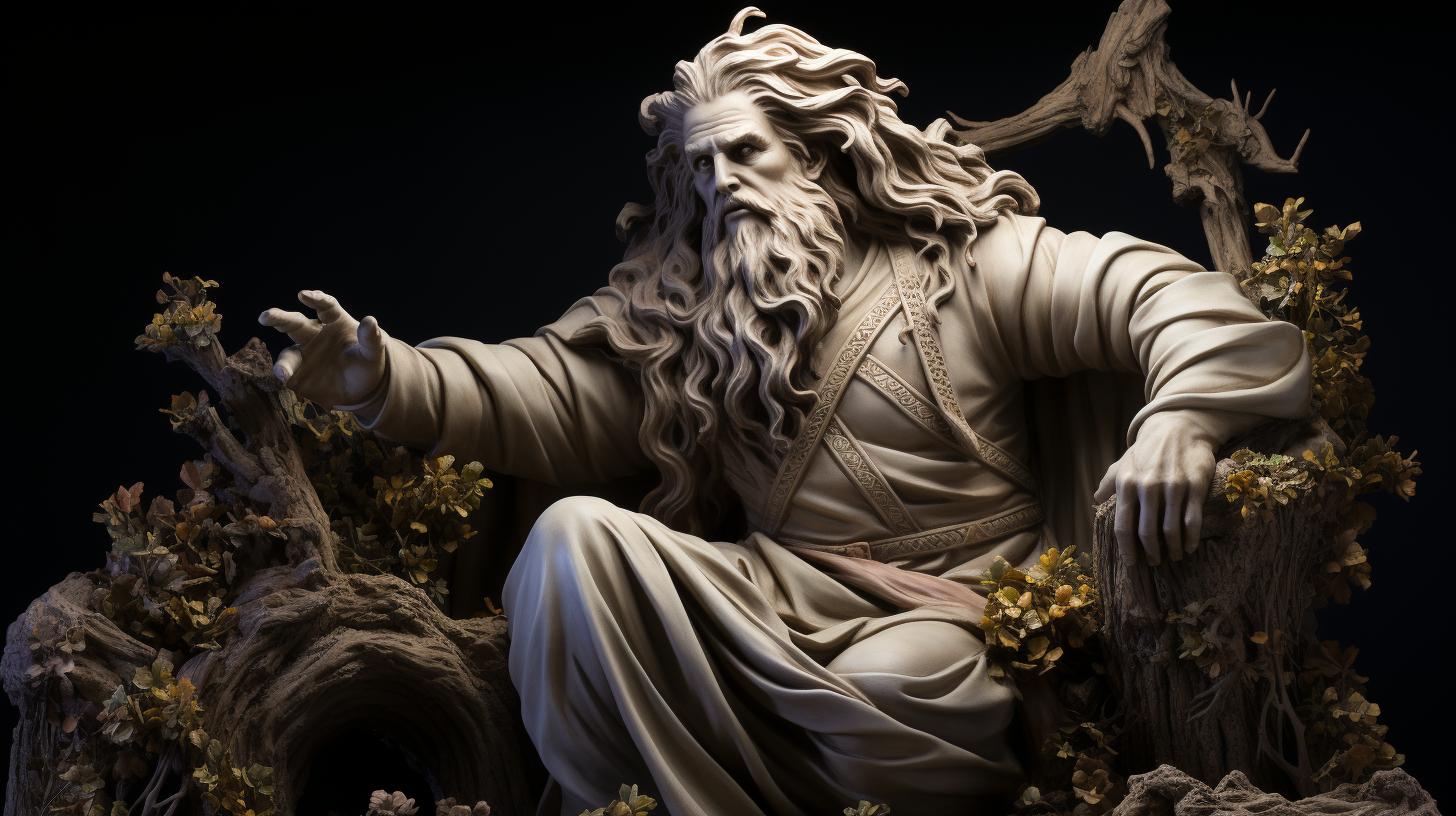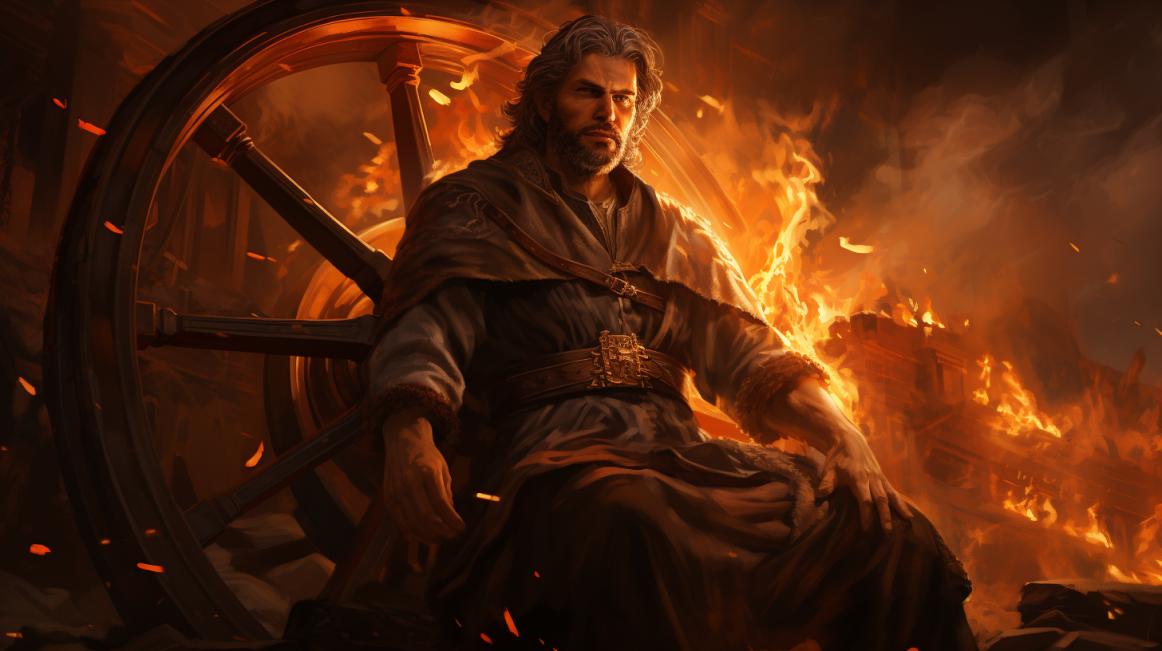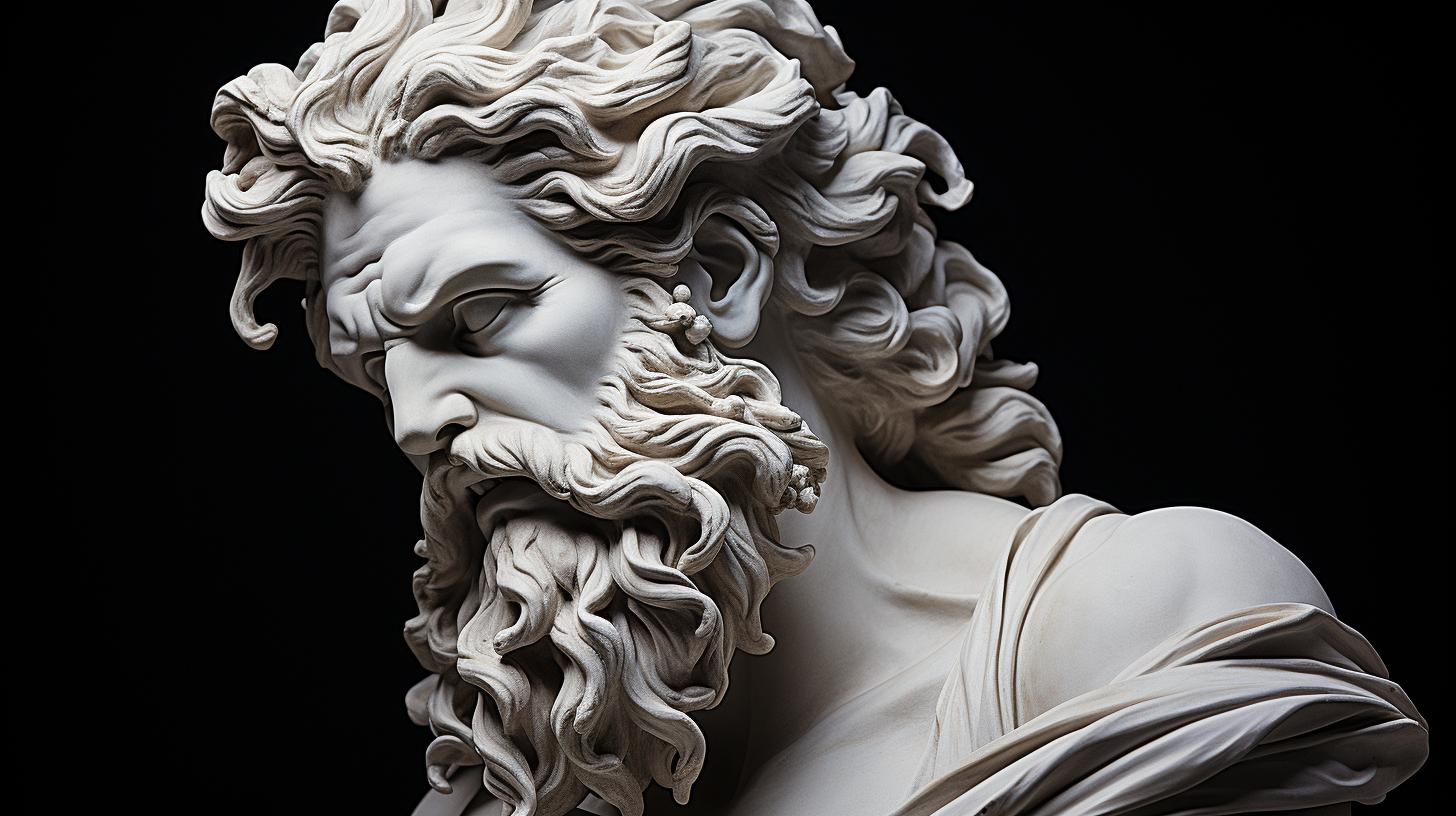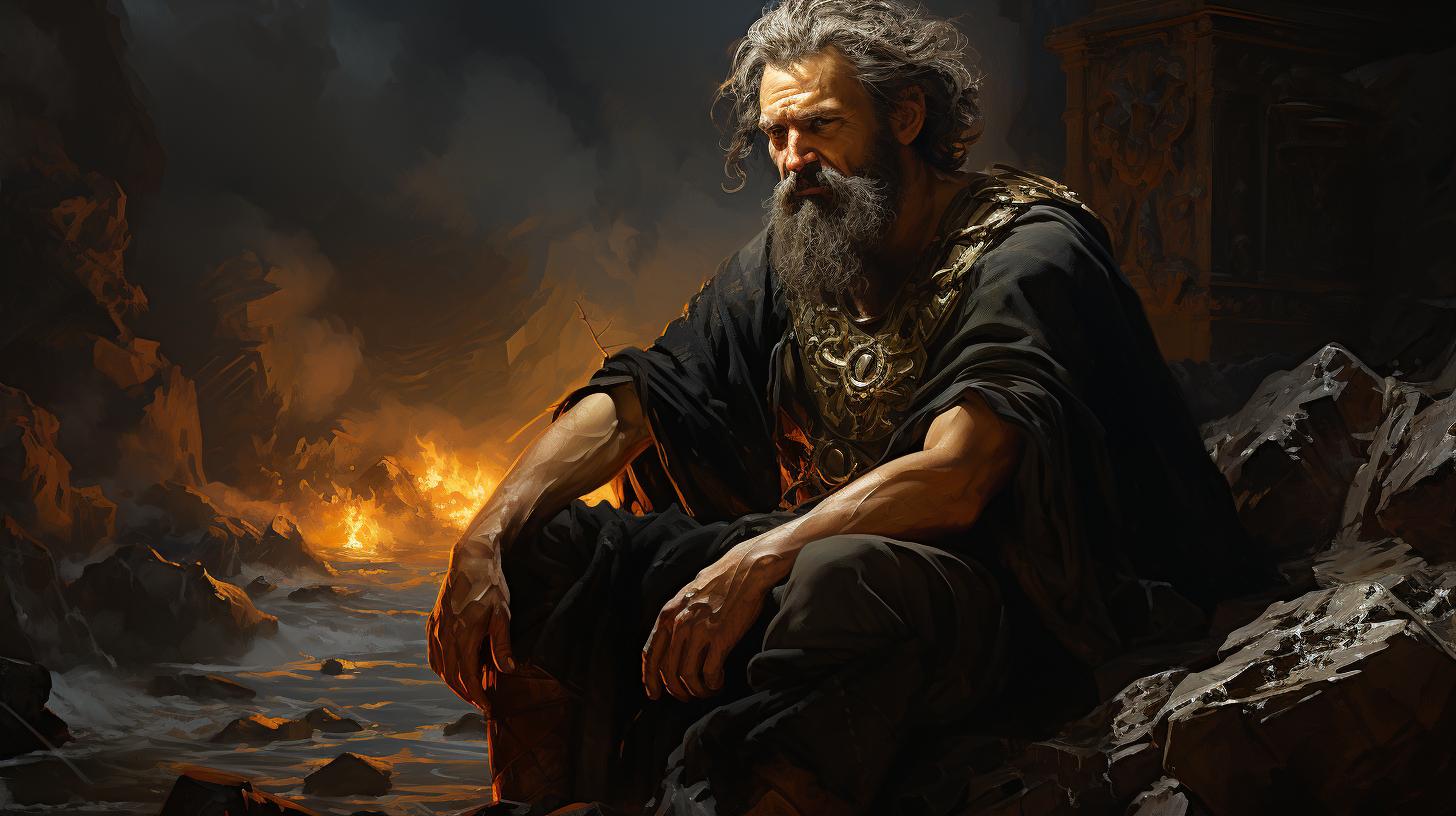Jocasta Greek Mythology: A Tragic Tale of Prophecies and Family Dynamics
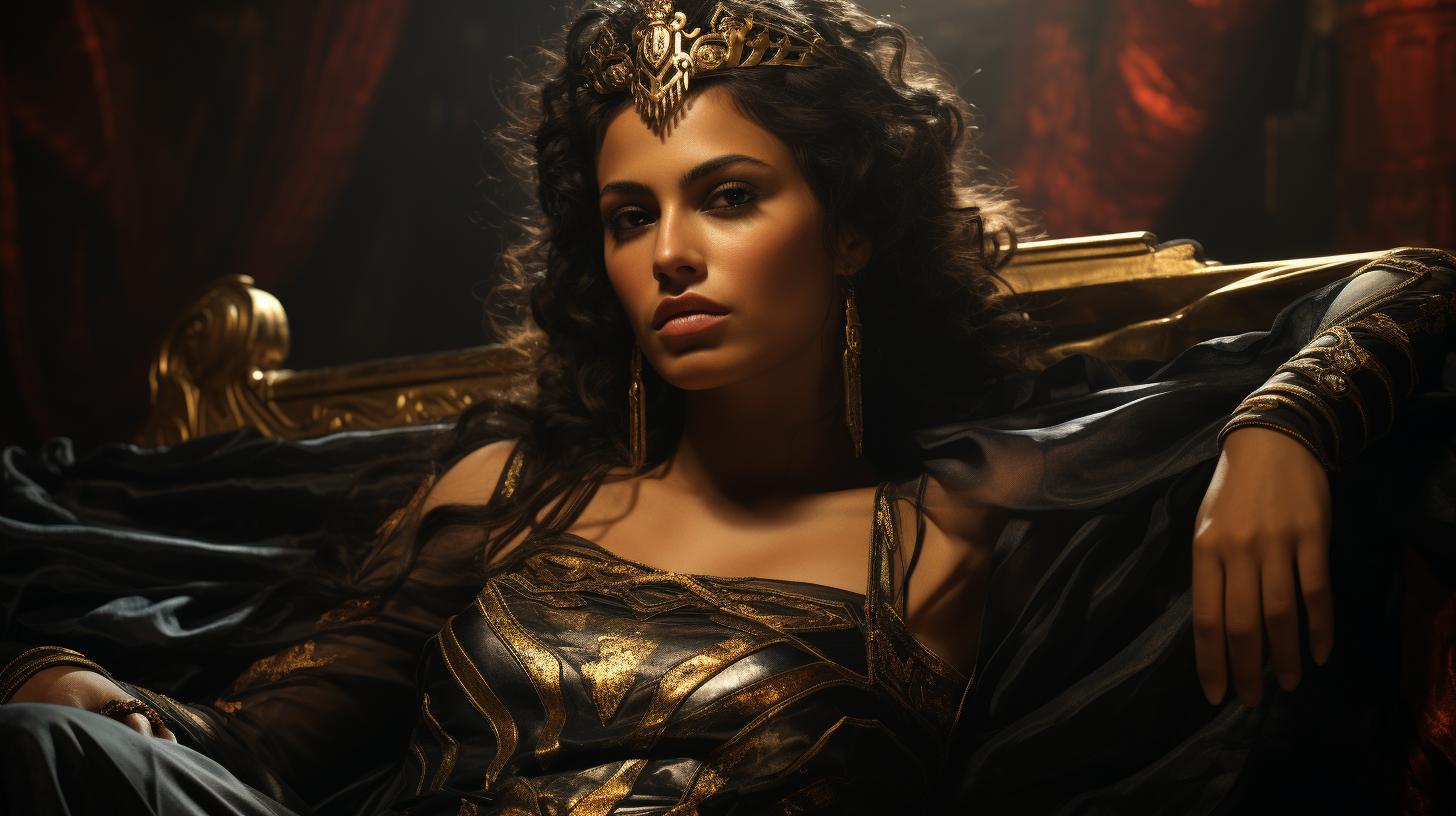
Jocasta, a prominent figure in Greek mythology, occupies a significant role as the wife of King Laius of Thebes. Her tragic story is intertwined with prophecies and family tragedies involving her husband and children.
From birth, Jocasta’s fate was foretold: her son would kill his father and marry his mother. In an attempt to avoid this prophecy, Laius abandoned their firstborn son to perish. However, the child was found and raised in Corinth, eventually known as Oedipus.
Later events would lead to the unveiling of Jocasta’s tragic destiny.
The Mythological Background of Jocasta
The mythological background of Jocasta delves into the intricate tales surrounding her and the events that shaped her life. It explores the relationship between the King and Queen of Thebes, Laius and Jocasta, as well as the tragic prophecy that foretold the fate of their son, Oedipus.
The King and Queen of Thebes: Laius and Jocasta
Laius and Jocasta, rulers of Thebes, play a vital role in Jocasta’s mythological background. Their position as the king and queen establishes their importance within the story and sets the stage for the unfolding tragedy.
The Tragic Prophecy and Abandonment of Oedipus
One of the most significant aspects of Jocasta’s mythological background is the tragic prophecy that dictated her son’s destiny. The prophecy revealed that Oedipus would kill his father and marry his mother.
In an attempt to prevent this horrifying fate, Laius decided to abandon their newborn son, Oedipus, on a mountain to die.
These two subtopics explore the beginning of Jocasta’s story, laying the foundation for the tragic events that would follow.
The Life of Jocasta
Jocasta played significant roles as the wife of King Laius and the mother of Oedipus in Greek mythology. Her life was marked by tragedy and intricate family dynamics.
Jocasta as the Wife of King Laius
Jocasta held the prestigious title of Queen of Thebes. She was married to King Laius, and together they ruled the city.
However, their happiness was marred by a foreboding prophecy.
Jocasta’s Role as Mother to Oedipus
Jocasta became a mother when she gave birth to Oedipus. Unaware of the prophecy surrounding their son, she nurtured and raised him in the city of Thebes.
Jocasta’s Marriage to Oedipus and Their Children
Tragically, Jocasta unknowingly married her own son, Oedipus, fulfilling the prophecy predicted years before.
Despite their incestuous relationship, Jocasta and Oedipus bore four children together: Eteocles, Polynices, Antigone, and Ismene.
Throughout her life, Jocasta faced the devastating consequences of her choices and the unfolding prophecy, ultimately leading to her tragic fate.
The Tragic Unveiling
In the tumultuous tale of Jocasta, tragedy reaches its peak as the events unravel, leading to the shocking truths that forever change the lives of Jocasta and Oedipus. This section delves into the heart-wrenching moments of “The Tragic Unveiling,” exploring Oedipus’s discovery of his patricide and incest, as well as Jocasta’s devastation and her subsequent suicidal fate.
Oedipus’s Discovery of His Patricide and Incest
Oedipus, in his relentless pursuit of truth and justice, finally uncovers the unimaginable reality of his own actions. It is a pivotal moment as he realizes that he has unknowingly killed his birth father, King Laius, and unwittingly married his own mother, Jocasta.
The weight of this unimaginable truth crashes down upon Oedipus, shattering his perception of self and thrusting him into a profound existential crisis.
Jocasta’s Devastation and Suicidal Fate
Jocasta, burdened by the revelation of her incestuous marriage, is enveloped in anguish and despair. The depths of her devastation lead her to make the tragic decision to end her own life.
It is a heart-wrenching moment as Jocasta recognizes the irreparable harm caused by the fulfillment of the prophecy and finds solace only in death. Her suicide leaves an indelible mark on the tragic tale of Jocasta and serves as a poignant symbol of the profound consequences of fate and destiny.
Psychological Perspectives: Oedipus Complex and Jocasta Syndrome
The Freudian Interpretation of Oedipus Complex
The Freudian concept of the Oedipus Complex posits that young boys experience unconscious sexual desires for their mothers and view their fathers as rivals. In the case of Jocasta and Oedipus, this theory becomes eerily relevant.
Oedipus unknowingly fulfills the prophecy by marrying his mother, while Jocasta, as his biological mother, becomes the object of his repressed desires. Freud believed that this complex was a normal part of psychosexual development and played a crucial role in shaping an individual’s personality.
Jocasta Syndrome: Psychological Effects on Mothers
Named after Jocasta herself, Jocasta Syndrome refers to a psychological phenomenon experienced by mothers who are romantically involved with their adult sons. It is characterized by emotional dependence, possessiveness, and an unhealthy attachment to the son.
These mothers may struggle to let go and allow their sons to form healthy, independent relationships. Jocasta Syndrome highlights the complexities of family dynamics, blurring the boundaries between love and obsession.
It serves as a cautionary tale, emphasizing the importance of healthy familial relationships and the need for individuals to establish their own identities separate from their parents.
Jocasta in Ancient Greek Tragedy and Literature
In the realm of ancient Greek tragedy and literature, Jocasta holds a significant role that reverberates throughout the narratives.
Her character is famously portrayed in the tragic play “Oedipus Rex” by Sophocles, where her presence contributes to the unfolding of a gripping tale.
Jocasta’s Role in Sophocles’s Oedipus Rex
In “Oedipus Rex,” Jocasta is the mother and wife of Oedipus, who becomes entangled in a complex web of prophecies and family secrets. She embodies the tragic figure who unwittingly fulfills the prophecy of marrying her own son and unknowingly bears him children.
Jocasta’s character is caught between her love for Oedipus and the harsh reality of their incestuous relationship, leading to a devastating climax.
Jocasta’s Presence in Other Greek Mythological Works
Beyond Sophocles’s masterpiece, Jocasta’s presence extends to other Greek mythological works, albeit with varying degrees of significance. In some depictions, she is portrayed as a mother figure, symbolizing the consequences of divine oracles and the powerlessness of mortals.
While her character may not always take center stage, Jocasta’s legacy permeates the narratives, emphasizing the enduring impact of her tragic story.
Jocasta in Popular Culture and Contemporary References
Jocasta’s Influence in Modern Literature and Films
Jocasta, a central figure in Greek mythology, has left an indelible mark on modern literature and film. Her tragic story has inspired numerous works that explore themes of fate, family dynamics, and the complexities of human nature.
In literature, Jocasta’s character has been reimagined and reinterpreted in various forms. Authors have delved into her perspective, giving voice to her thoughts and emotions. Novels and plays have emerged, shedding light on the depth of Jocasta’s inner turmoil and her struggles with the tragic events that unfold around her.
Similarly, the world of cinema has also been captivated by Jocasta’s story. Filmmakers have adapted her tale, bringing it to life on the big screen. Through powerful visuals and compelling performances, Jocasta’s character has been portrayed with both vulnerability and strength, allowing audiences to connect with her on a profound level.
Jocasta Pronunciation: Variations and Clarity
The pronunciation of “Jocasta” can vary depending on regional dialects and personal preferences. In American English, it is commonly pronounced as “joh-kas-tuh,” with the emphasis on the second syllable. However, alternate pronunciations such as “joh-kah-sta” or “joh-ka-suh-tuh” are also heard.
It is important to note that clarity in pronunciation is key when referring to Jocasta. Given her significance in Greek mythology, ensuring a correct pronunciation pays homage to her enduring legacy.
While variations exist, it is advisable to adhere to the commonly accepted pronunciation to maintain consistency and understanding when discussing Jocasta’s name.
The Significance of Jocasta in Greek Mythology
Jocasta’s role in Greek mythology holds great significance, as she embodies the tragic fate and powerlessness faced by mortals in their relationship with the gods and destiny. Her story serves as a cautionary tale, highlighting the consequences of attempting to defy prophecies and the intricate web of familial dynamics.
Jocasta’s Representation of Tragic Fate and Powerless Mortals
Jocasta’s life is a prime example of individuals being subject to the whims of fate and divine prophecies. Despite her efforts to prevent the foretold tragic events, Jocasta ultimately falls victim to the inescapable destiny that was laid out before her.
Her inability to control the outcomes of her life, despite her desires and actions, reflects the powerlessness experienced by mortals in the face of gods’ intervention.
Furthermore, Jocasta’s character represents the concept of tragic fate in Greek mythology, where one’s actions unknowingly contribute to their own downfall.
Her unwitting fulfillment of the prophecy adds to the tragic nature of her story, showcasing the inevitable consequences of defying the gods’ plans.
The Complex Themes and Lessons Surrounding Jocasta
Beyond her portrayal as a victim of destiny, Jocasta’s narrative delves into various complex themes and imparts valuable lessons. One such theme is the exploration of moral ambiguity and the blurred lines between right and wrong.
Jocasta finds herself caught in a morally taboo relationship, highlighting the complexities of morality in the context of powerful desires and external circumstances.
Jocasta’s story also raises questions about agency and free will.
Despite the constraints imposed by prophecies and divine intervention, Jocasta makes choices that contribute to the unfolding tragedy. This prompts contemplation on individuals’ capacity to shape their own lives and the extent to which they can escape predetermined paths.
Overall, Jocasta’s significance in Greek mythology extends beyond her tragic fate. She serves as a poignant reminder of the limitations faced by mortals, the fragility of human choices, and the powerful forces at play in the realm of gods and destiny.
.

